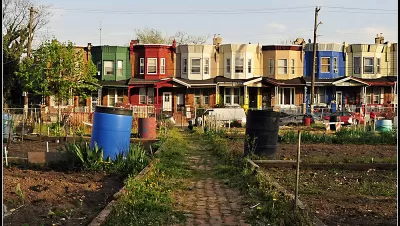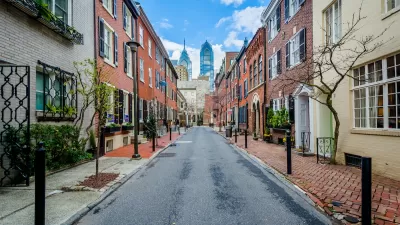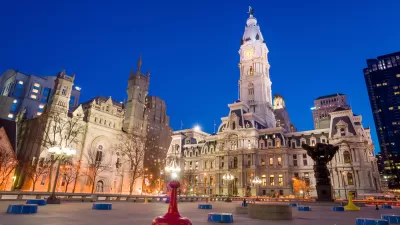Jonathan Geeting argues that Philadelphia’s recently proposed affordable housing program is focusing on the wrong problem—in Philadelphia, housing is quite affordable, but people are still too poor to afford it.

“While it’s always good to see well-meaning city leaders engaging with housing affordability and cost of living issues, the big problem with Clarke’s plan is that the housing affordability ‘crisis’ he’s worrying about doesn’t actually exist,” writes Jonathan Geeting in a recent article that gives a detailed examination of a recently announced affordable housing proposal by Philadelphia City Council President Darrell Clarke.
“The housing itself is quite cheap here compared to most of Philadelphia’s peer cities. The real issue is the 28.4 percent poverty rate, one of the highest in the nation. Cheap as the housing is in absolute terms, a sizable segment of the population still doesn’t earn enough money to afford it.”
According to Geeting, the distinction “matters a great deal, because mistaking the poverty problem for a housing market problem biases the political response toward some needlessly expensive and low-impact policies.”
The article provides detailed analysis of the cost of housing in several Philadelphia neighborhoods—including some of those mentioned in Clarke’s reports—all of which are affordable enough that, according to Geeting, they could make “heads explode” in New York City and Washington D.C. Geeting also recommends that Philadelphia begin to measure housing affordability after factoring in the cost of transportation.
FULL STORY: Philly Has an Income Problem, Not a Housing Affordability Problem

Americans May Be Stuck — But Why?
Americans are moving a lot less than they once did, and that is a problem. While Yoni Applebaum, in his highly-publicized article Stuck, gets the reasons badly wrong, it's still important to ask: why are we moving so much less than before?

Using Old Oil and Gas Wells for Green Energy Storage
Penn State researchers have found that repurposing abandoned oil and gas wells for geothermal-assisted compressed-air energy storage can boost efficiency, reduce environmental risks, and support clean energy and job transitions.

Placekeeping: Setting a New Precedent for City Planners
How a preservation-based approach to redevelopment and urban design can prevent displacement and honor legacy communities.

San Francisco’s Muni Ridership Grew in 2024
The system saw its highest ridership since before the Covid-19 pandemic, but faces a severe budget shortage in the coming year.

Colorado Lawmakers Move to Protect BRT Funding
In the face of potential federal funding cuts, CDOT leaders reasserted their commitment to planned bus rapid transit projects.

Safe Streets Funding in Jeopardy
The Trump administration is specifically targeting bike infrastructure and other road safety projects in its funding cuts.
Urban Design for Planners 1: Software Tools
This six-course series explores essential urban design concepts using open source software and equips planners with the tools they need to participate fully in the urban design process.
Planning for Universal Design
Learn the tools for implementing Universal Design in planning regulations.
Heyer Gruel & Associates PA
City of Moreno Valley
Institute for Housing and Urban Development Studies (IHS)
City of Grandview
Harvard GSD Executive Education
Salt Lake City
NYU Wagner Graduate School of Public Service
City of Cambridge, Maryland




























